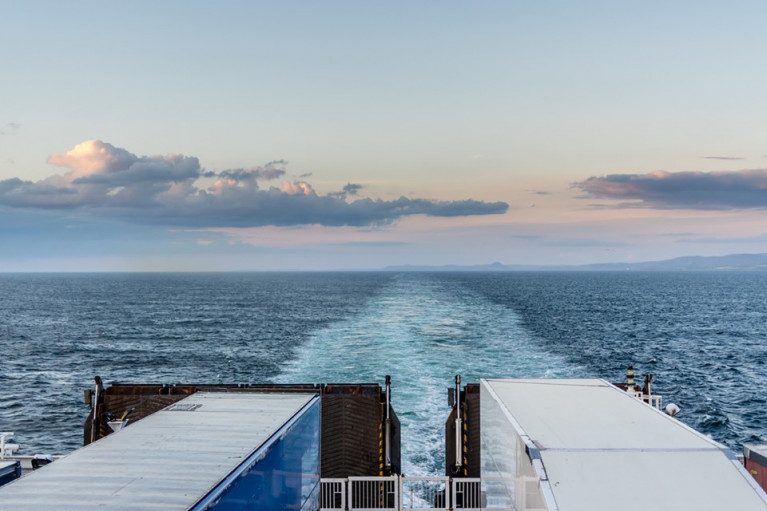A call from Irish hauliers to ferry operators to shut all bars and restaurants at sea and to provide room service to individual drivers in their own cabins to keep them shielded from Covid-19, reported Independent.ie
The Freight Transport Association of Ireland (FTAI) issued its appeal as Brittany Ferries which Afloat also reported on Monday, became the first operator to suspend some of its sea links with the island.
FTAI general manager Aidan Flynn said truck drivers were critical for ensuring that agri-food and other essential supplies travel uninterrupted between Ireland, Britain and Europe.
Mr Flynn said ferry firms should “prioritise the safety and welfare of commercial drivers during the Covid-19 pandemic. Their safety should take precedence to ensure our supply chain is protected at all costs.”
The association wants ferries to provide all passengers - but particularly lorry drivers - their own individual cabins and to deliver meals and drinks directly to those cabins. It says all bars and restaurants should be shut to reduce potential virus transmission.
For more on this story which refers to other ferry operators, click here and whenever the newspaper (homepage) has more and in addition to their 'Travel News' here.
Afloat has listed the ferry operators websites below with an important range of travel advice and information with FAQ relating to Covid-19.
Irish Ferries and for sailing updates by clicking here
Stena Line and for sailing updates click here
Brittany Ferries for sailing updates here
It is strongly advised to consult these operators frequently for updates.
In addition to consulting the Irish Department of Foreign Affairs and Trade (DFA) website HERE for the latest advice on travelling overseas and from the UK Foreign and Commonwealth Office (FCO) HERE (re: Ireland) and also HERE.
According to today's TheJournal.ie as of midnight tonight, Ryanair flight schedules will be cut by over 80%. The airline says that almost all of its flights (“if not all”) will be grounded next week, from midnight of Tuesday, 24 March.































































